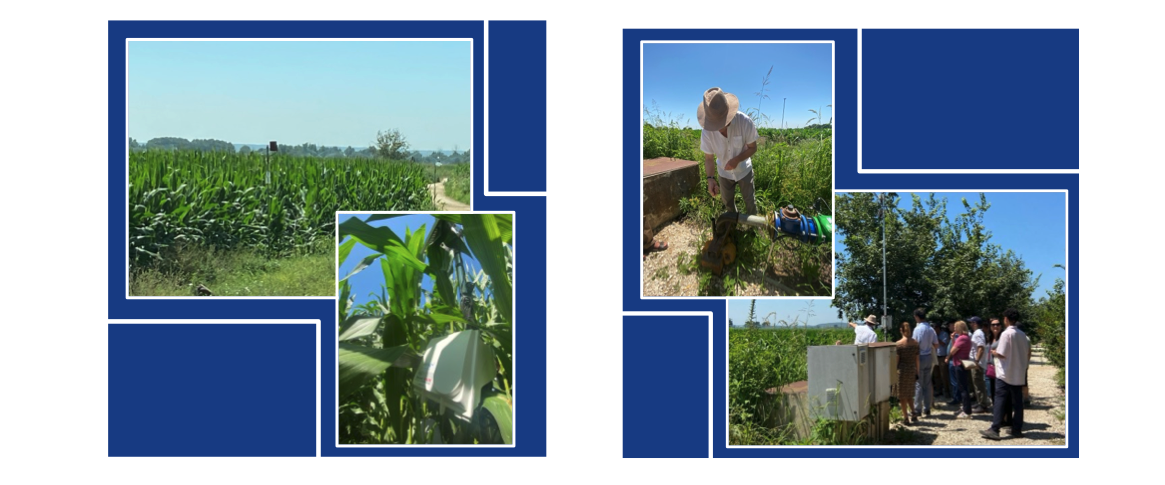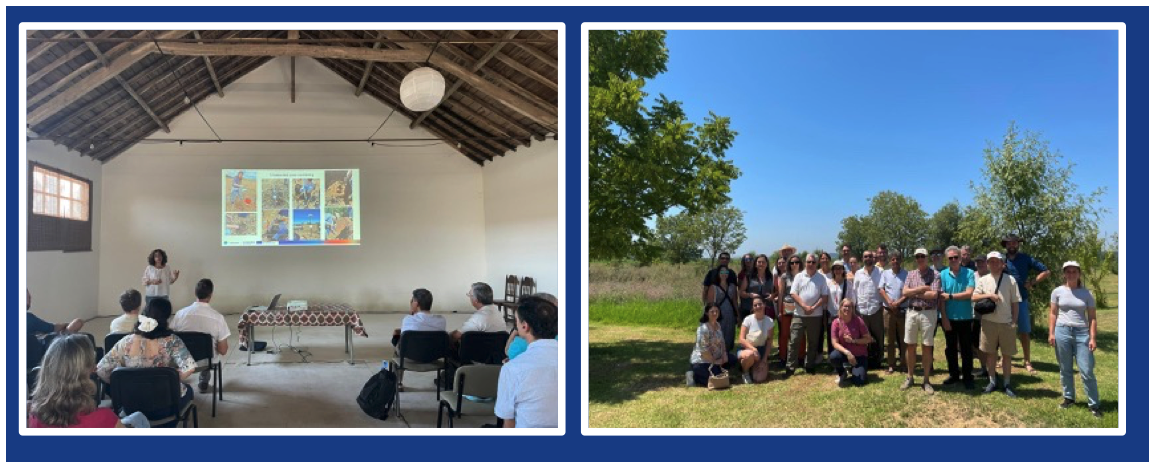The third plenary meeting of the Clepsydra project was held in Lisbon on 15 and 16 July 2025.
The first day was devoted to a visit to João Coimbra’s farm in the Quinta Da Cholda region.
Located in the Tagus alluvial plain, water for agricultural use is drawn from the shallow aquifer. They do not have quantitative problems, but they do have water quality challenges due to contamination by certain elements such as nitrates. Water for human consumption is also drawn from deep aquifers in order to collect better quality water.
In order to balance productivity and resilience, João has successfully implemented numerous solutions combining high-tech and nature-based solutions on his agricultural exploitation. This approach allows him to maintain the necessary irrigation adapted to the needs of the crops while aiming for energy neutrality (energy consumption related to pumping) and respect for the soil, particularly biodiversity:
- Plot instrumentation: sensors to monitor soil moisture, weather stations (temperatures), soil conductivity, etc., irrigation control system to meet the precise needs of plants for more efficient management of water and energy resources.
- Mapping using satellite or drone images to optimise soil fertilisation (particularly in terms of organic matter, as the water and soil are sufficiently rich in nitrogen and phosphorus) and thus limit the use of unnecessary inputs.
- Study of the profitability of plots to understand and identify loss-making plots. Some plots are returned to nature by promoting honey plant species to attract pollinators.
- Installation of solar panels to achieve energy neutrality.

The Instituto Superior de Agronomia (ISA-LEAF) presented the results from their pilot site, which was installed as part of the project and is located on the farm. They presented their system for monitoring soil moisture at different levels (quantitative aspect: monitoring of water levels in the superficial aquifer throughout the seasons) as well as their tools for characterising the qualitative aspects of this superficial aquifer (monitoring of nutrients, particularly nitrate, and other contaminants).
The farm visit was followed by a convivial gathering that showcased Portugal’s culinary expertise.

The second day of these meetings was very productive for the project partners. Topics relating to all the work carried out in the various activities were addressed and discussed.
The partners alternated between technical and scientific presentations and brainstorming workshops in order to make progress on the outreach tools that we hope to be able to share with you in the coming months.
We have also set the date for the next transnational meeting which will take place in Montpellier from 3 to 5 February 2025. The event will include the Steering Committee meeting and the Training of Trainers session.



